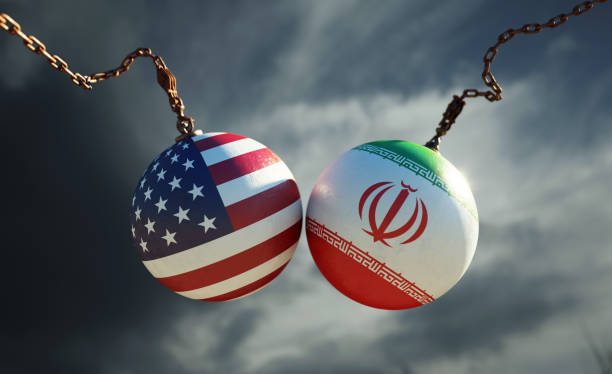

Just when the world media was predicting Donald Trump’s bombing of Iran over the weekend was going to lead to petrol prices spiking, surges in power bills and inflation that could KO interest rate cuts or even a global recession, overnight Iran played the ‘nice enemy’ with a less-than-shock-and-awe response! Wall Street lapped it up, with all three most-watched share market indexes up, not down.
Never wanting to be a killjoy media type, I still have to ask this important question — how long will Iran’s supreme leader Ayatollah Khamenei play the forgive-and-forget recipient of US bombs?
For the sake of the local economy and the material lives of everyone in a global economy, calmer heads and even peace in the Middle East are needed. If that happens, it will be a coup for Donald Trump, but we can’t be Pollyannas and hope that the Iranians are now seeing the world with different glasses following the weekend's hostilities.
As we say to our clients in the wealth-building game: “Hope is not a strategy.” So, it makes sense to contain your optimism over Iran’s response, because it will be exactly this that determines what happens to stock markets, your super, your power bills, your home loan interest rates and maybe even your job.
For the sake of being prepared, let’s look at the worst-case scenarios of this attack on Iranian nuclear facilities, which the SMH says led the Iranian Parliament to vote to close the Strait of Hormuz, where 20% of the world’s oil supply ships through:
“The global oil price has risen to more than US$80 ($124) a barrel, up from US$65 a fortnight ago,” the SMH’s Michael Foley and Frances Howe reported. “However, NRMA spokesperson Peter Khoury said prices were unlikely to hit the highs of 2022, when it took a range of factors to drive oil to US$133 a barrel.”
That’s when Russian oil was hit with sanctions because of the Ukraine invasion and the end of Covid implications for global supplies and inflation.
So, what’s the good news overnight that helped the Dow close up over 300 points?
This is how CNBC saw Monday’s trading on Wall Street: “Stocks rose, and crude prices tumbled Monday as investors breathed a sigh of relief that Iran’s response to the US attacks over the weekend was more restrained than expected.”
According to reports that the New York Stock Exchange traders have looked at, the news that Iran’s armed forces had attacked an American base in Qatar following the US attacks on Fordo, Isfahan and Natanz over the weekend, and rated that as not as bad as we were expecting.
While there is also speculation that the President might have exaggerated the impact of his bombers on Iran, Jamie Cox, managing director of US-based Harris Financial Group, summed up the current market feeling:
“Markets only care about oil supply shocks, so as long as they stay at bay, we’ll see markets sharply higher,” he told CNBC. “Regardless of whether the President oversold the effectiveness of the strikes or not, the nuclear program in Iran was set back decades.”
Ultimately, we’re in the hands of Iran’s response to the bombings over the weekend. It could easily get seriously worse and oil prices would rise and stock prices and your super balance would fall.
However, there’s a view that Iran’s actual military strength (which has been overrated by the Iranian leadership, combined with the recent attacks from the US and Israel, along with the country’s lack of committed allies) could mean that the response from the leaders in Tehran might result in the worst-case scenario that media outlets were predicting yesterday.
Let’s hope that view is on the money for lives in the Middle East, our investments and our hip pockets.